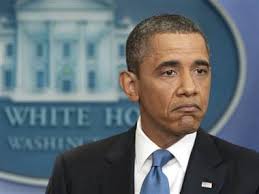 President Obama allowed an Iran sanctions bill to become law without his signature Thursday, using a rare constitutional maneuver that hasn’t been used in 21 years.
President Obama allowed an Iran sanctions bill to become law without his signature Thursday, using a rare constitutional maneuver that hasn’t been used in 21 years.
Obama’s decision to allow the Iran Sanctions Extension Act to become law ends the latest chapter of the debate over his pursuit of a nuclear deal with Iran, in which world powers agreed to relax sanctions on the Iranian regime in exchange for specific commitments to curtail its pursuit of a nuclear weapon.
Congress passed the bill to give a future president the authority to “snap-back” those sanctions if Iran violates the deal. House Speaker Paul Ryan, R-Wis., said it would give President-elect Donald Trump “the opportunity to evaluate our policy towards Iran independent of additional interference from the outgoing administration.”
But the White House has said the president already has that authority under a separate law, the International Emergency Economic Powers Act, and that the new law was unnecessary but ultimately harmless.
“This is part of a message we’re sending to Congress, and it’s simply this: If Congress does blow up the deal that prevents Iran form obtaining a nuclear weapon, they’re going to have to deal with the consequences, and the consequences are grave,” White House press secretary Josh Earnest said.
The White House conceded that it was rare for a president to neither sign nor veto a law. “We find ourselves in a situation that I’m not sure we’ve encountered in eight years. The bill didn’t meet the standard of something that the president would veto, but it’s also not something that the administration feels is necessary,” Earnest said.
The maneuver is made possible by a quirk in what’s called the presentment clause of the Constitution. In a way, it’s the flip side of a pocket veto: If the president doesn’t sign a bill while Congress has adjourned, it’s a veto. If he signs it while Congress is in session, it becomes law “in like manner as if he had signed it.”
Congress recessed for the year last Friday, but remains in “pro forma” session — a kind of skeleton session in which Congress remains open for business, usually to block pocket vetoes and recess appointments.
The Iran Sanctions Extension Act had just one provision, extending life of The Iran Sanctions Act of 1996 for 10 more years, until Dec. 31, 2026. It passed Congress nearly unanimously. The vote was 419-1 in the House and 99-0 in the Senate.
The last time a president allowed a bill to become law without his signature was 1995, when President Bill Clinton did not sign an annual defense spending bill. Clinton expressed a number of policy and constitutional concerns with the law, but concluded that “the pressing demands of peace and of our military service men and women compel my approval of this measure.”
According to the National Archives, 28 bills have become law without the president’s signature since 1951. During the same time, there have been more than 200 pocket vetoes.
USA TODAY

Leave a Reply
You must be logged in to post a comment.